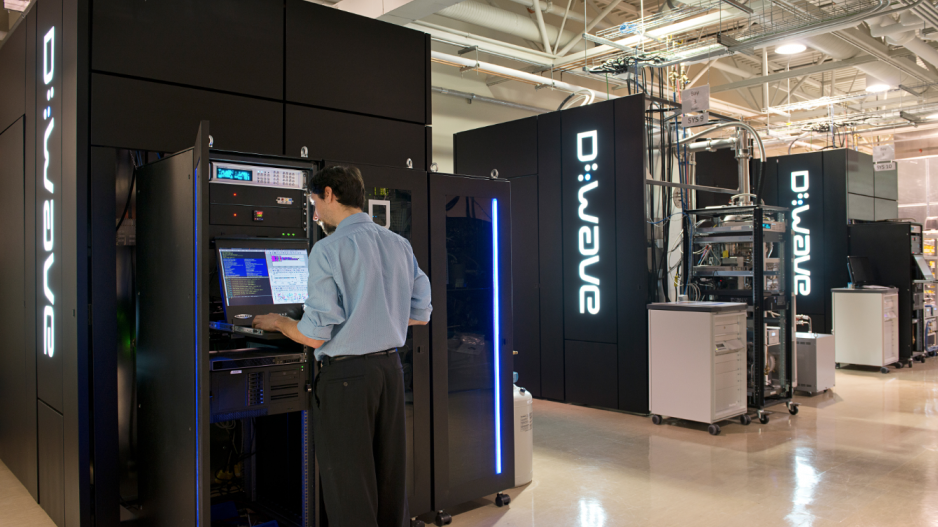D-Wave Systems Inc. is hoping to leapfrog over its competitors with a $120-million project aimed at advancing the Burnaby company’s quantum computing systems.
“It's crucial that in addition to providing innovative hardware software and services, we also build a commercial base that advances the development of open source tools to expand the widespread use and knowledge of quantum computing,” CEO and president Alan Baratz said during a virtual announcement on Thursday in which the federal government committed $40 million to the project.
The latest endeavour from the quantum computing firm is focused on further developing its software and hardware systems, and the company will be creating and maintaining 200 jobs as it builds a new and more powerful processor.
D-Wave is also committing to spending $480 million on research and development as well as hiring up to 10 co-op students.
The B.C. firm is a pioneer in its field, building what many consider to be the world’s first commercially viable quantum computer.
It has sold systems to Google, U.S. defence company Lockheed Martin Corp. (NYSE:LMT) and Los Alamos National Laboratory.
But Baratz said the company has shifted its business model and is no longer selling the physical systems.
“Our entire business model now is cloud-based,” he said.
“We sold a few systems early on in the life of the company. But we realized that it's important to put a business model in place that would allow us to access as many customers as possible and allow those customers to grow with us.”
Baratz declined to share how much revenue was being generated through D-Wave’s cloud computing offerings but he confirmed the company has 50 paying customers.
D-Wave’s quantum computers differ from regular computers that use two bits – ones and zeroes – to make calculations.
Instead, quantum computers rely on qubits, which possess a “superposition” allowing it to be one and zero at the same time.
This means it can calculate all possible values in a single operation and greatly reduce the amount of time it takes to make complex calculations.
The company currently holds more than 200 patents and it’s among the growing number of firms emerging in B.C. to tap the potential behind quantum computing.
In 2019 the provincial government committed $17 million over five years to a new quantum computing institute at Surrey’s Simon Fraser University campus.
The Quantum Algorithms Institute is creating a new graduate degree program in quantum computing — an initiative the province said would help secure more B.C. talent for the sector.
Vancouver software developer 1Q Information Technologies Inc. (1QBit) is the next biggest name in B.C. after D-Wave when it comes to quantum computing.
Its software is best known for chemistry and finance applications but last year it began deploying its first medical product, known as xrAI (pronounced “X-ray”).
The AI-powered tool examines X-ray images and highlights abnormalities for physicians, helping them better identify patients with respiratory complications such as SARS, pneumonia and tuberculosis.
Those applications have since expanded to assist with COVID-19.
“The interest for us has always really stemmed from what eventually we’re hoping quantum computing will be relevant [to],” 1QBit president Landon Downs told BIV last year.
Meanwhile, 1QBit has also been bolstered by funding from Fujitsu Ltd. (TYO:6702), which led a $45-million Series B funding round for the software firm in 2017.
Fujitsu Intelligence Technology Ltd. CEO Naoko Yoshizawa told BIV the following year that the multimillion-dollar investment helped inform her company’s decision to set up its global artificial intelligence headquarters on the West Coast.




